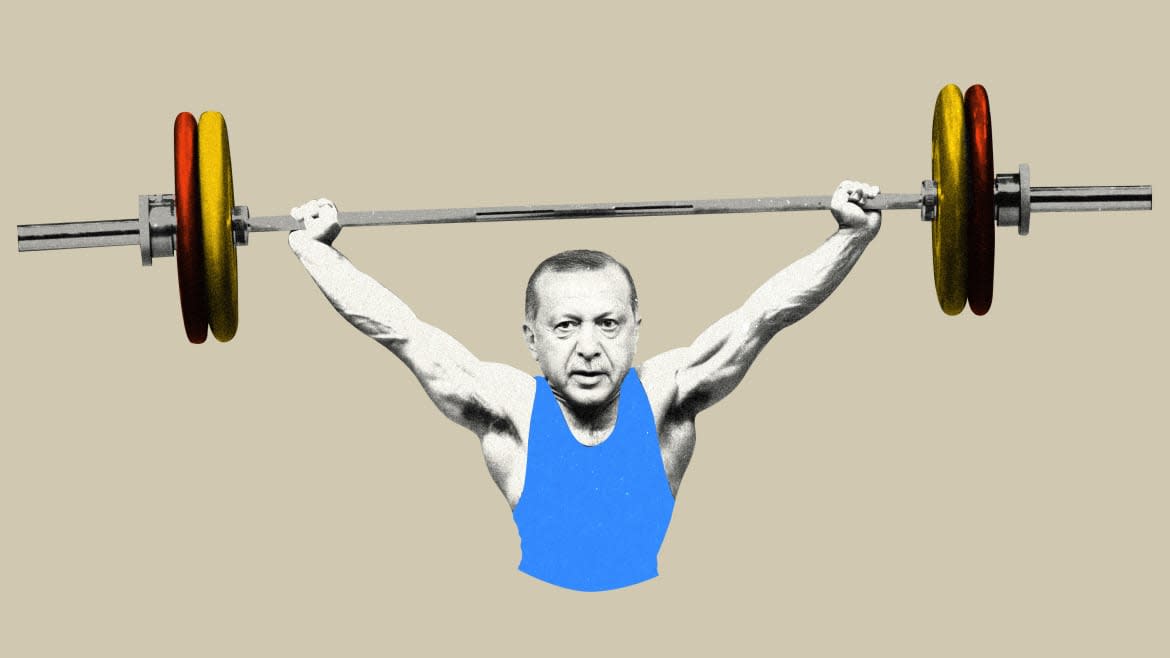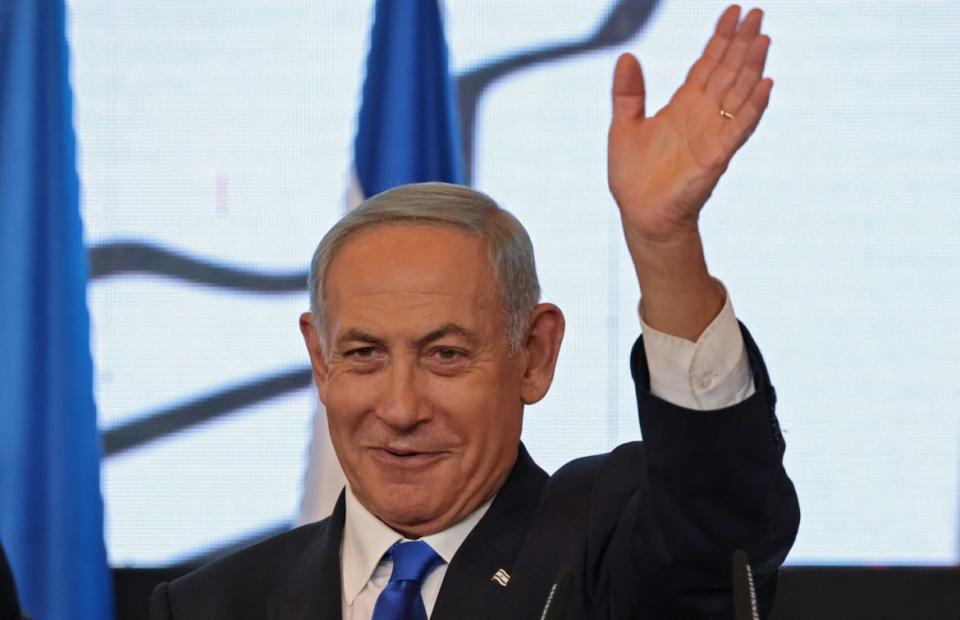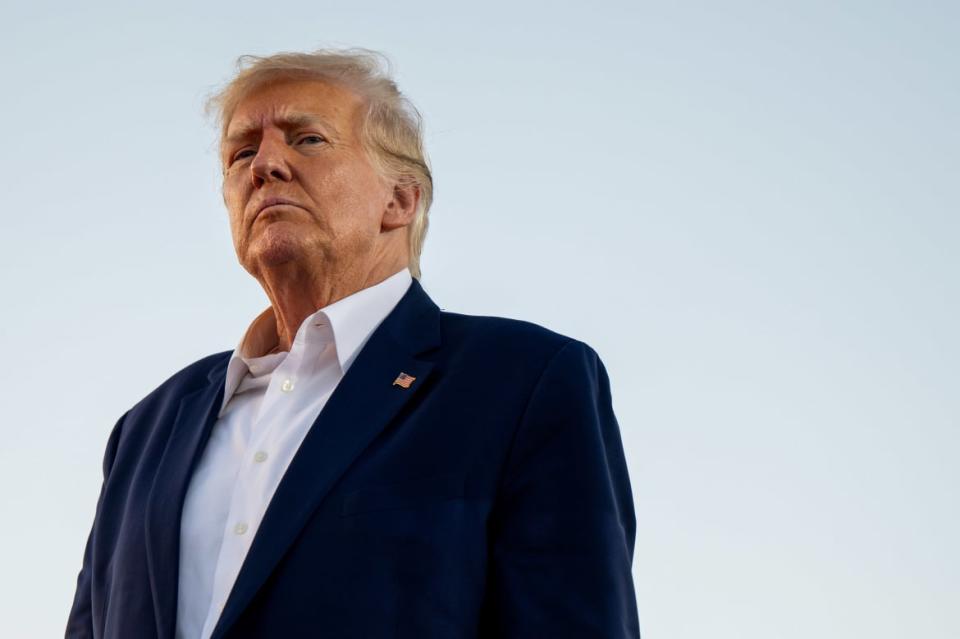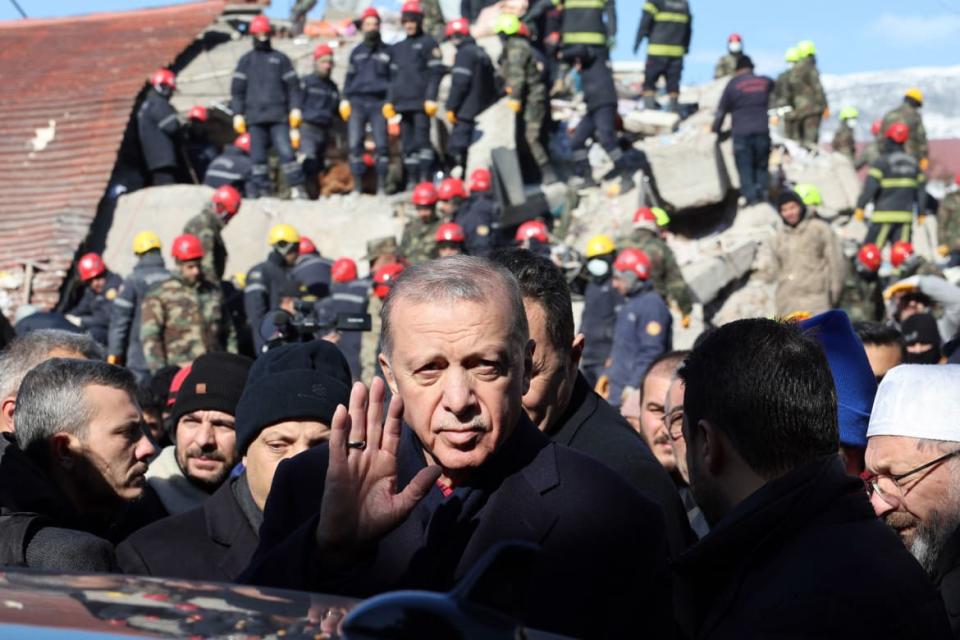The Age of the Strongman Is Back—but Is It Here to Stay?

- Oops!Something went wrong.Please try again later.
- Oops!Something went wrong.Please try again later.
- Oops!Something went wrong.Please try again later.
- Oops!Something went wrong.Please try again later.
Turkey’s President Recep Tayyip Erdogan surprised observers last month by winning a presidential election runoff, extending his rule into a third decade.
Erdogan secured more than 52 percent of the vote, in defiance of almost all polling, and despite political crises, including soaring inflation that passed 80 percent in 2022—and scathing criticism over his handling of earthquakes that killed more than 50,000 people.
The enduring political strength of Erdogan reinforces a wider dynamic: the remarkable resilience of the populist “strongman.”
Saudi Golf Takeover Shows U.S. Is Losing Its Cultural Superpowers
Around 2017, commentators started noticing a concerning rise of populist “strongman” politics. Time magazine reflected on this new archetype of leader: “…changing times have boosted public demand for more muscular, assertive leadership. These tough-talking populists promise to protect “us” from “them.” And “them” could allude to anyone from the corrupt elite, to racial, ethnic or religious minorities, to gangs and cartels, or even to Western cultural decadence.
A pattern had already been emerging.
The support within Russia for Putin hardened after state media dubbed the annexation of the Crimean Peninsula in 2014 a “miracle.”
In 2016 we saw the populist victory of both Brexit in the U.K. and, in the U.S., the ascension to the presidency by the outsider and disruptor Donald Trump. That same year, in the Philippines, the hard-edged, unsparing populist Rodrigo Duterte was elected president. His political success was aided by his vocal support for the extrajudicial killing of drug users and other criminals, after he repeatedly claimed to have personally killed criminal suspects during his term as mayor of Davao. He initiated a controversial war on drugs, crime, and corruption. His tenure sparked numerous protests and attracted controversy, particularly over human rights issues. Despite the criticisms, Duterte maintained high approval ratings.
Jair Bolsonaro, a politician and retired military officer, and a vocal opponent of same-sex marriage, abortion, drug liberalisation and secularism, was elected president of Brazil in 2019. During his term, he rolled back protections for Indigenous groups in the Amazon rainforest and enabled its deforestation.

Israeli Prime Minister Benjamin Netanyahu
In Israel, the right-shifting trend toward Israeli nationalism, and divided opposition, provided an enduring power base for the ubiquitous Prime Minister Benjamin Netanyahu.
Israel Is Having Its Biggest Existential Crisis Yet
During these years, there was a clear ascension of populist, nationalist “strongmen,” each with a sufficiently strong support base to resist criticism from the secular intelligentsia and the media.
However, things seemed to abruptly change. Within the span of a year or so, it seemed as if the era of the “strongman” was receding.

Former U.S. President Donald Trump
Trump’s presidency ended after just one term; the first time an incumbent had failed to secure re-election since George H.W. Bush in 1992. The system held—barely—when strained by allegations of voter fraud, and through the visceral spasm of violence on Jan. 6.
Bolsonaro was defeated by a left-wing populist, the first-ever Brazilian president to fail to be re-elected. Bolsonaro disappeared off to Florida to lick his wounds.
Netanyahu, under a cloud of various investigations, was finally ousted by a wide-ranging coalition of his opponents, who shared little in common other than an intense desire to remove him.
Duterte simply opted not to run for a second term.
Trump and Putin Are in Deep Trouble and Need Each Other More Than Ever
Vladimir Putin’s invasion of Ukraine—a “special military operation” envisaged to last a matter of weeks, met unexpected resistance, became bogged down, engendered surprising solidarity and unity of purpose in the West, brought major sanctions, and prompted the expansion of NATO.
Around this time, Turkey’s President Erdogan seemed to falter, with an embarrassing loss for his AKP party’s candidate in a local Istanbul election.
And yet, just when this counter-narrative seemed to be firming, and the era of the populist “strongman” seemed to be yielding to a more emphatically secular democratic one, populist strongman politics proved to be remarkably resilient.
Even under two indictments, Trump remains far in the lead of Republican primary polls. He even leads President Biden in some hypothetical match-ups, driven by an almost preternaturally resilient personal appeal among his base.
Bolsonaro returned to Brazil from his Florida self-exile, and seems to be laying the ground for a political comeback, where he retains a solid support base.
In barely any time at all, the anti-Netanyahu coalition in Israel collapsed amid its untenable differences, and Netanyahu returned to power. The new Israeli government, which formed in late 2022, saw his conservative Likud party propped up by an upstart generation of ultranationalist politicians. And although his present coalition is brittle, it was a remarkable feat of resilience for Netanyahu to chart a path back to office.
Despite all the setbacks—and the unfolding Ukrainian spring counter-offensive—Putin’s domestic support remains high, and the Russian economy is fairly resilient in the face of ongoing sanctions and isolation.

Turkish President Recep Tayyip Erdogan tours the site of destroyed buildings following an earthquake in southeast Turkey.
And in May, Turkey’s Erdogan, written off by almost every presidential poll, with most analysts expecting he wouldn’t even last the first round of voting, has retained power, with a clear majority.
Trump Case Isn’t About ‘Documents,’ It’s About National Security
The high water mark of the populist “strongman” may have been a few years ago, but we have seen a counter-narrative against the assumption that secular liberal democracy would fulsomely re-emerge into the ascendancy.
Still, can this populist moment last much longer?
By the end of 2024, Donald Trump might be headed back to the Oval Office, but he’d be prohibited from running again. And if he loses, he won’t run again until he’s 82 years old. And while nothing—not impeachments, indictments, or the shame of his failed coup attempt—has yet knocked Trump down for the count, time remains undefeated.
Netanyahu’s fragile coalition under the pressure of massive public demonstrations against judicial reforms, might not be able to save his skin forever. Bolsonaro’s flirtation with a comeback is hardly guaranteed. And a stalemate in The Donbas region of Ukraine, and mounting casualties, may finally stoke a wave of domestic unrest in Russia that poses a true threat to Putin’s reign.
That’s the hopeful scenario, that the old strongmen fade, and their movements with them. But just as likely and far more worrying is the potential emergence of younger, tough-talking populist firebrands picking up their mantles—promising to protect “us” from “them.”
Get the Daily Beast's biggest scoops and scandals delivered right to your inbox. Sign up now.
Stay informed and gain unlimited access to the Daily Beast's unmatched reporting. Subscribe now.

